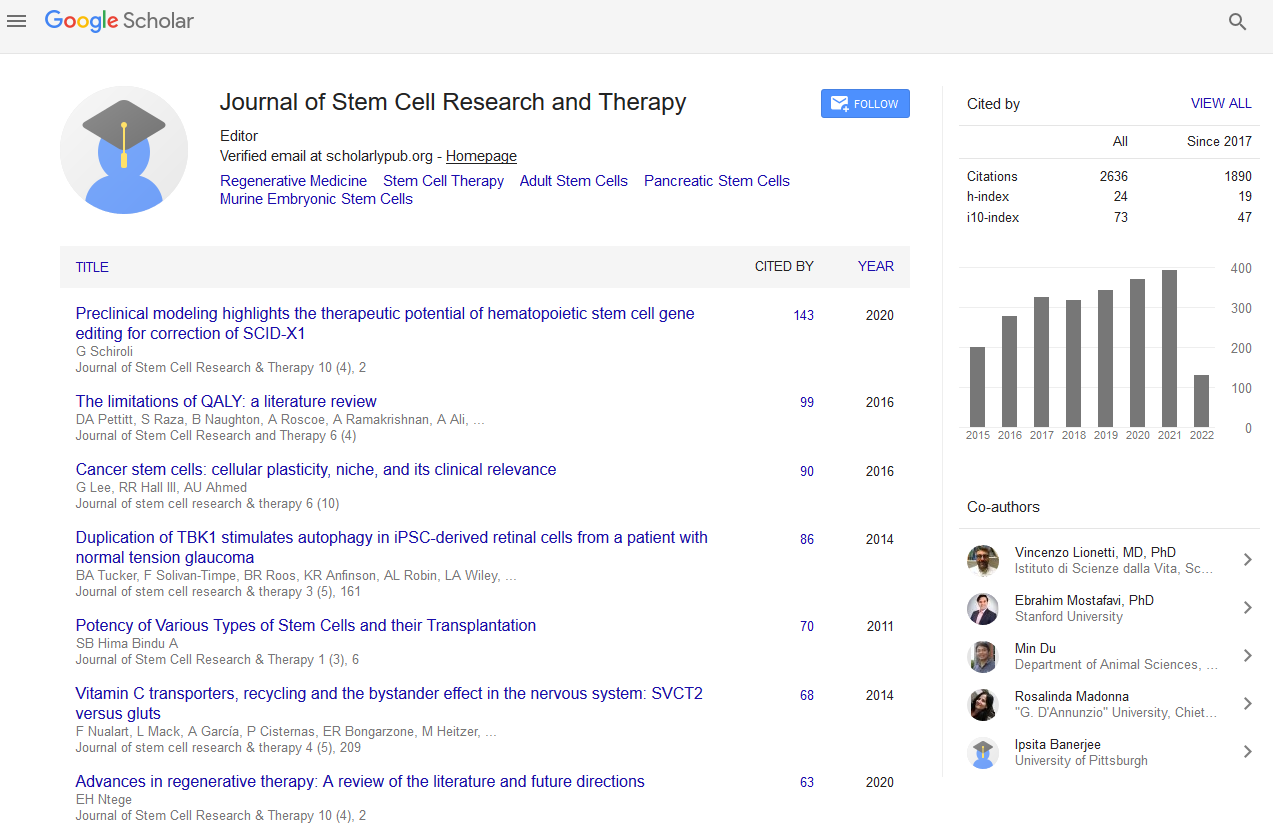Indexed In
- Open J Gate
- Genamics JournalSeek
- Academic Keys
- JournalTOCs
- China National Knowledge Infrastructure (CNKI)
- Ulrich's Periodicals Directory
- RefSeek
- Hamdard University
- EBSCO A-Z
- Directory of Abstract Indexing for Journals
- OCLC- WorldCat
- Publons
- Geneva Foundation for Medical Education and Research
- Euro Pub
- Google Scholar
Useful Links
Share This Page
Journal Flyer

Open Access Journals
- Agri and Aquaculture
- Biochemistry
- Bioinformatics & Systems Biology
- Business & Management
- Chemistry
- Clinical Sciences
- Engineering
- Food & Nutrition
- General Science
- Genetics & Molecular Biology
- Immunology & Microbiology
- Medical Sciences
- Neuroscience & Psychology
- Nursing & Health Care
- Pharmaceutical Sciences
Abstract
Neurosteroid Hormones Modulate the Differentiation of Adult Human Multipotent Mesenchymal Stromal Cells
B. I. Tiftikcioglu, C. M. Rice, R. Karabudak and N. J. Scolding
Objective: To examine the effect of neurosteroids on human multipotent mesenchymal stromal cell (hMSCs) neuroglial differentiation. Materials and methods: Human MSCs were isolated and expanded in vitro. The expression of neurosteroid receptors by hMSCs was examined using immunocytochemistry and the effect of neurosteroids on the proliferation and differentiation of hMSCs was investigated using immunocytochemistry and the 3-(4,5-dimethylthiazol-2-yl)-2,5- diphenyl tetrazolium bromide (MTT) survival assay. Results: Human MSCs express receptors for neurosteroids. Nestin expression is decreased by neurosteroids. Neurosteroids also exert differential effects depending on the gender of the hMSC donor; dihydrotestosterone (DHT) was responsible for maximal A2B5 expression in hMSCs from male donors whereas 17-β estradiol (E2) exerted the greatest effect on differentiation of ‘female’ hMSCs. Maximal effects of E2 and DHT were observed at a concentration of 100nM, progesterone (PROG) at 250nM. The neurosteroid-induced increase in oligodendroglial differentiation was abrogated by specific receptor antagonists for E2, PROG and DHT. High concentrations of neurosteroids were toxic for hMSCs, irrespective of gender. Conclusions: These results suggest a significant role for neurosteroid hormones in the differentiation of hMSCs and may have important implications for the development of MSC transplantation therapy for multiple sclerosis and in autoimmune diseases.


